Bridgestone Americas Inc., (Bridgestone) announces that its Wilson, NC, passenger and light truck tire manufacturing plant has achieved Underwriters Laboratories’ (UL) landfill waste diversion claim validation for Zero Waste to Landfill. Zero Waste to Landfill is the highest claim validation UL gives for landfill waste diversion, which is performed and delivered by UL Environment, a business unit of UL. Bridgestone’s Wilson tire plant is the first facility of any kind to receive this prestigious designation.
“I am so proud of the teammates at the Wilson facility for their commitment to being the first of Bridgestone’s manufacturing sites, and the first manufacturing facility of any kind, to be recognized by UL Environment for this accomplishment,” says Gary Williamson, Wilson Plant Manager, Bridgestone Americas. “This achievement validates all of their hard work, and continues to position our company as a leader in identifying and implementing innovative solutions to support environmental sustainability.”
The Wilson facility achieved its Zero Waste to Landfill goals in February 2013, and began the process of applying for UL’s claim validation. The facility had to undergo an extensive, two-part, UL Environment-led audit, which included document evaluation and on-site visits. During the evaluation process, UL verified Wilson’s Zero Waste to Landfill claim with 14% waste to energy, determining that a majority of the facility’s waste to energy diversion — 11% — is the best possible use for that material.
“UL’s Zero Waste to Landfill validation provides an opportunity for businesses and brands to holistically assess their waste reduction efforts, and to confidently share their sustainability success stories,” explains Lisa Meier, Vice President of UL Environment. “We believe this validation will help illustrate the commitment that leading companies, like Bridgestone, have made to improving their environmental impact.”
Innovation is a key to Bridgestone’s success in finding beneficial uses for what was once landfilled waste. Facility leadership worked closely with disposal partner Waste Management Sustainability Services (Waste Management) to identify all of the remnant waste materials from manufacturing processes such as whole scrap tires, rubber components and packaging, as well as ancillary support processes such as offices and cafeterias. Together, Bridgestone and Waste Management successfully found other beneficial-use markets for these materials.
“It was clear from our work with the Wilson leadership team that their commitment was something that should be nurtured and recognized on a much larger scale,” says Tom Carpenter, Director of Waste Management’s Sustainability Services Division. “We were thrilled to partner with them and support them in achieving their ambitious and admirable goal of Zero Waste to Landfill.”
Bridgestone’s passenger and light truck tire manufacturing plant in Aiken, SC, achieved Zero Waste to Landfill in December 2012. Since adding a corporate recycling focus in 2006, recycling by the company’s Aiken, SC; Bloomington, IL; Des Moines, IA; Joliette, Quebec, Canada; LaVergne, TN.; Monterrey, Mexico; Warren, TN.; and Wilson, NC, tire plants has progressed from nearly half of all waste going to landfills to less than 15% overall today.
“The UL mark is widely accepted as one of the highest achievements for companies and products,” says Tim Bent, Director of Environmental Affairs, Bridgestone Americas. “UL Environment’s validation of our Zero Waste to Landfill achievement at Wilson demonstrates to our customers, our communities and our teammates that we are a corporate partner highly committed to helping ensure a healthy environment for current and future generations.”
“One Team, One Planet” is the overarching program for all of Bridgestone Corporation’s environmental activities focusing on the company’s three major environmental objectives: Being in harmony with nature, valuing natural resources and reducing CO2 emissions.
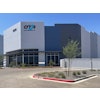




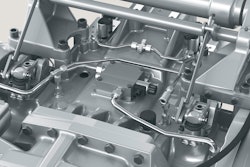
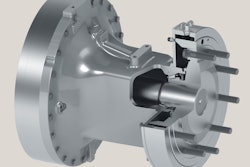
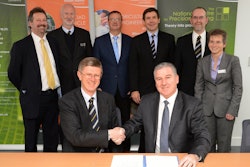




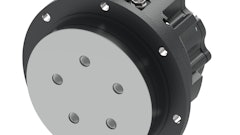




![Sa P75 I Sahr[80]](https://img.oemoffhighway.com/mindful/acbm/workspaces/default/uploads/2025/10/sa-p75-isahr80.Cn3n79HB4H.jpg?ar=16%3A9&auto=format%2Ccompress&fit=crop&h=135&q=70&w=240)